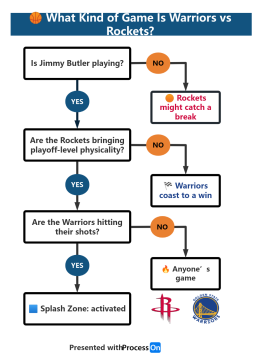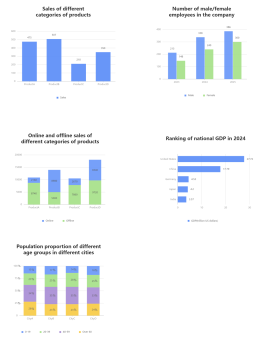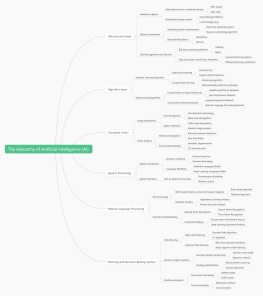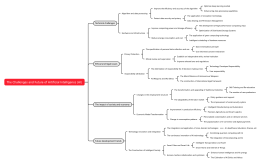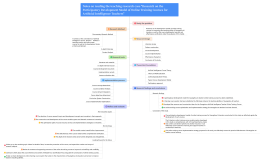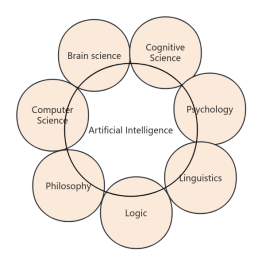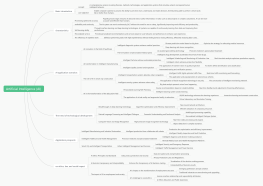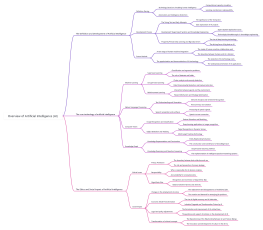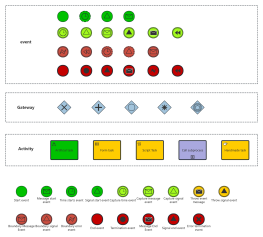The four elements of Artificial Intelligence (AI)
2024-10-14 18:47:46 147 0 Report 0
0
Login to view full content
This mind map explores 'The Four Elements of Artificial Intelligence (AI),' offering a comprehensive overview of the key components driving AI advancements. It delves into data, highlighting crucial aspects such as collection, quality assessment, preprocessing, and storage solutions like cloud and local architectures. The algorithm section examines machine learning, deep learning, and optimization techniques, emphasizing supervised and unsupervised learning, parameter tuning, and ensemble learning. Computing power is analyzed through hardware comparisons, AI chips, cloud computing, and edge computing. Lastly, scene applications illustrate AI's transformative impact on intelligent manufacturing, smart healthcare, and smart city development.
Other creations by the author
Outline/Content
Data
Data collection
Data source diversity
Internet data
IoT device data
Corporate internal data
Data Quality Assessment Criteria
Data preprocessing
Data Cleaning
Missing value handling
Outlier detection
Data Formatting
Unified data format
Data normalization/standardization
Data storage
Cloud storage solutions
Alibaba Cloud OSS
Amazon S3
Local Storage Architecture Design
Distributed storage system
Data Backup and Recovery Strategy
Data Analysis
Statistical analysis method
Descriptive statistical analysis
Inferential statistical analysis
Application of machine learning algorithms
Classification algorithm
Regression algorithm
Algorithm
Machine Learning Algorithm
Supervised Learning
Decision tree
Support Vector Machine
Unsupervised Learning
Clustering algorithm
Dimensionality reduction algorithm
Deep learning algorithm
Neural Network
Convolutional Neural Network (CNN)
Recurrent Neural Network (RNN)
Reinforcement Learning
Q-learning
The Principle of AlphaGo Algorithm
Algorithm optimization
Parameter tuning
Grid Search
Random Search
Algorithm fusion
Ensemble learning
Multi-model fusion strategy
Computing power
Computing hardware
Comparison between CPU and GPU
Differences in computing power
Application scenario analysis
Dedicated AI Chip
TPU(Tensor Processing Unit)
NPU(Neural Processing Unit)
Cloud computing platform
Public cloud service provider
Alibaba Cloud
Amazon AWS
Cloud Computing Service Types
IaaS (Infrastructure as a Service)
Platform as a Service
Edge computing
Definition and Advantages of Edge Computing
Low latency response
Reduce cloud pressure
Edge computing application scenarios
Intelligent Security
Self-driving
Scene Application
Intelligent Manufacturing
Automation of production lines
Robot Assembly
Intelligent Quality Inspection
Supply chain optimization
Inventory Management System
Logistics Tracking System
Smart Healthcare
Disease Assistant Diagnosis
Image recognition technology
Genetic sequencing analysis
Health Management Platform
Personal Health Record Management
Telemedicine services
Smart City
Intelligent Transportation System
Intelligent Traffic Signal Lights
Management of Autonomous Vehicles
Intelligent Security
Face recognition technology
Intelligent video surveillance
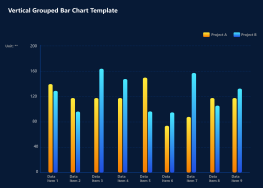
Collect
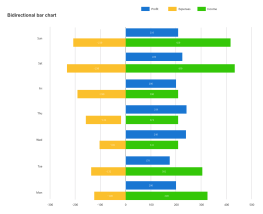
Collect
0 Comments
Next page
Recommended for you
More

